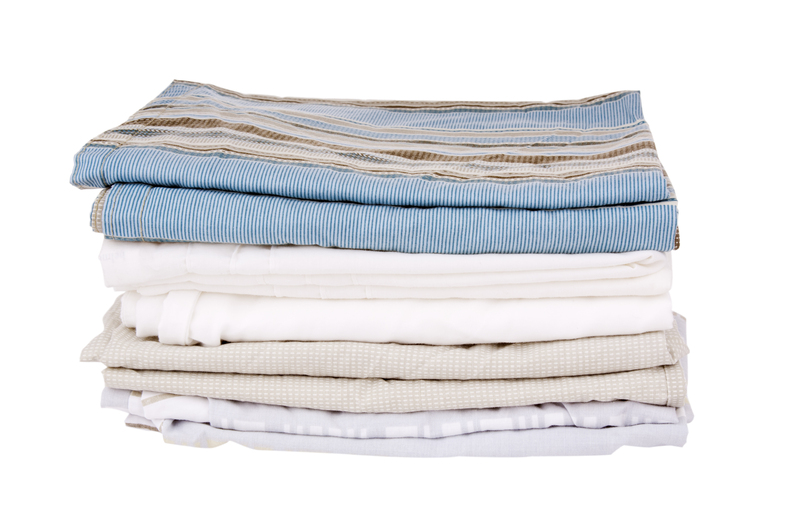Cut Costs on Bulky Waste: Smart Strategies for Every Household
Bulky waste disposal can be a major headache and a significant expense for families, property owners, and tenants alike. Whether you're renovating, moving, decluttering, or simply confronting the buildup of old furniture and appliances, making wise choices helps you save money and protect the environment. In this comprehensive guide, discover actionable bulky waste cost-saving tips and top smart strategies to reduce bulky disposal fees while making eco-friendly choices.
Why Bulky Waste Costs Matter
Disposing of bulky items--think mattresses, sofas, broken cupboards, wardrobes, white goods, and old carpets--can quickly become expensive. Many local councils and private waste disposal companies charge fees per item, per collection, or even by weight. For families operating on a budget or environmentally conscious residents, these costs stack up and take a financial and ecological toll.
Understanding how to manage bulky waste efficiently is a game-changer. Not only will you save money on bulky waste disposal, but you'll also contribute to a cleaner, greener community. Let's explore the best strategies for households to minimize waste costs and maximize sustainability.

What Counts as Bulky Waste?
Before strategizing, it's essential to know what typically counts as bulky or large-item waste. This usually includes:
- Old furniture (sofas, armchairs, beds, wardrobes, cabinets)
- Large appliances (washing machines, refrigerators, cookers, dryers)
- Mattresses and bed frames
- Carpets, rugs, and underlays
- Garden waste (large branches, sheds, fencing)
- Old electronics and TVs
- Broken bicycles, exercise equipment
Most regular household wheelie bins and kerbside recycling don't accept these items due to their size and special handling requirements.
Top Strategies to Cut Costs on Bulky Waste
1. Reduce Before You Remove
The most effective way to reduce large-item disposal costs is simple - create less waste. Ask yourself:
- Do you genuinely need to get rid of the item?
- Could it be repaired, upcycled, or repurposed?
- Is it possible to dismantle it and reuse the materials?
By reducing unnecessary disposals, you'll lower your bulky waste management costs and help the environment.
2. Sell or Give Away Usable Items
One household's trash may be another's treasure! If an item is still functional, consider platforms like:
- Online marketplaces - Facebook Marketplace, Gumtree, Craigslist, eBay
- Local community groups or Nextdoor
- Freecycle or Olio for giving away unwanted items
Often, people are happy to collect free items, especially large things like sofas and beds, sparing you bulky item removal fees and saving them money.
3. Donate Where Possible
Charities and social enterprises often accept gently used furniture and appliances. Some offer a free or low-cost collection service, especially for:
- Furniture reuse charities (e.g., British Heart Foundation, Emmaus, Furniture Reuse Network)
- Homeless shelters and refugee resettlement programs
- Local charity shops (call to check if they have storage/transport)
This approach reduces landfill waste while helping others, an all-around win for budgets and communities.
4. Check Your Local Council's Bulky Waste Service
Most councils provide a bulky waste collection service for residents, but charges and rules differ widely:
- Some offer one or two free collections per year, especially for seniors or people with disabilities.
- Others charge per item or per collection. Fees may vary for residents VS non-residents.
- Some restrict the types/quantities of items.
Check your local council's website for up-to-date terms. If you can, coordinate with neighbours to split collection costs.
5. Take Bulky Waste to the Tip--But Do It Smart
Most recycling centres and household waste sites accept bulky items free of charge or for a minimal fee, provided you're a local resident:
- Plan ahead: Find out what items your nearest centre accepts, and if there are restrictions or charges (some may charge for mattresses or builder's waste).
- Book a slot: Many councils require you to book a visit, especially since the Covid pandemic.
- Dismantle for space: Break down large items (e.g., take apart beds or wardrobes) to fit more in your vehicle and reduce tip visits.
This DIY approach can significantly reduce bulky waste costs if you have access to suitable transport.
6. Rent or Borrow a Van for Bigger Loads
If you're tackling a big clear-out, it may be cheaper to hire a van for a day and make one bulk trip to your tip or charity warehouse.
- Ask friends or neighbours if they will share costs and vehicle space.
- Track local "man with a van" Facebook pages for one-off lower rates.
This approach avoids individual collection fees and ensures all your bulky rubbish disposal is sorted in one go.
7. Check for Producer Take-Back or Retailer Schemes
Some white goods retailers (e.g., for fridges, washing machines, mattresses) offer a removal service when you buy a replacement from them. Manufacturer "take-back" schemes may dispose of old bulky items for little or no cost, especially for electronics.
- Always ask the retailer about disposals (some include it in delivery charges).
- Look for national take-back days or recycling drives near you.
8. Group Bulky Waste with Friends or Neighbours
If several homes in your street need to get rid of large waste, consider pooling together for a
- shared private collection, or
- skips or van rental
This bulky waste cost-cutting method slashes individual expenses and is more convenient for all involved.
9. Upcycle or Repurpose: Get Creative
Many "bulky" items can be transformed into useful household features:
- Turn old doors into garden tables or shelving
- Use drawers as planters
- Repurpose pallets for DIY projects
- Convert broken appliances into storage or quirky decor
You'll reduce bulky waste disposal costs and create something unique for your home.
10. Hire Reputable Licensed Waste Carriers
If you need help removing bulky waste, always use a licensed and insured waste carrier. This protects against illegal fly-tipping, which can result in fines and environmental harm. Ask for a waste carrier's licence number, and check reviews.
11. Negotiate or Compare Bulky Waste Service Fees
If using a private collector:
- Obtain several quotes - prices vary dramatically.
- Negotiate fees, especially for multiple items.
- Look for special deals or discounts for combining two or more collections.
Always read the fine print regarding what is included in the service, and ensure proper disposal paperwork is provided.
Avoid Common Bulky Waste Mistakes
- Don't dump illegally: Fly-tipping is illegal and carries heavy fines. Always use authorized methods of disposal.
- Don't overload regular bins: Placing large or forbidden items in your wheelie bin could result in missed collections or penalties.
- Don't forget to cancel collections if plans change: Most councils and private firms charge for missed or cancelled appointments at short notice.
- Don't ignore recycling rules: Some items (e.g., white goods, batteries, electronics) must be recycled following strict regulations due to hazardous components.
Extra Tips for Eco-Friendly Bulky Waste Disposal
- Separate materials for recycling: Many tips and charity shops accept certain parts/materials even if the whole item can't be reused.
- Photograph and measure: For online sales or donations, having a clear picture and measurements makes items more attractive and easier to re-home.
- Check warranty or insurance: If an appliance or furniture item fails, it may be replaced or collected under warranty, saving you bulky disposal costs.
Special Considerations: Rental Properties and Moves
Tenants and landlords often face last-minute bulky waste challenges. Here's how to handle them:
- Discuss with letting agents or landlords about any included disposal services.
- Book collections in advance--end-of-tenancy is peak demand time.
- Try to sell, donate, or rehome items before moving-out deadlines.
- Ensure you leave the property clear of large waste for return of your deposit.

Frequently Asked Questions (FAQs) on Bulky Waste and Cost Savings
Q1: Can I dispose of my sofa for free?
Depending on your local council, you may be entitled to one free bulky waste collection annually. Alternatively, charities and online platforms may collect reusable sofas at no cost. For unusable items, tips and recycling centres usually accept them for free if you're a resident.
Q2: What items are not usually accepted in council bulky waste collections?
Most councils do not collect: hazardous materials, car parts, construction rubble, or commercial/business waste as part of household bulky waste schemes. Always check council guidelines.
Q3: How do I ensure my waste is disposed of legally?
Always use council services, authorised charities, or licensed waste carriers. Request a waste transfer note or proof of collection to guarantee your bulky items are legally disposed of.
Q4: Can I put a mattress in a skip?
Some skip companies charge extra for mattresses, while others don't allow them due to disposal rules. Check in advance to avoid surprises or extra costs.
Q5: How can elderly or disabled residents save money on bulky waste?
Many councils offer free collections or reduced fees for vulnerable residents. Contact your local authority's waste management team to discuss available options and eligibility.
Summary: Smart Moves for Less Waste, Lower Costs
Cutting costs on bulky waste isn't just about finding the cheapest removal option--it's about making smart, sustainable decisions at every stage. If you:
- Reduce, reuse, sell, or donate whenever possible
- Tap into community, council, and charity services
- DIY transport for large loads when practical
- Share resources and collection fees with others
- Research, negotiate, and confirm the legality of disposal methods
...you'll save money, reduce household waste, and support your environment.
Conclusion: Take Charge of Bulky Waste the Smart Way
Whether you are downsizing, renovating, helping a relative, or just want to streamline your home and budget, these bulky waste cutting strategies give you the power to save significant cash and help the planet. Try a few tips above before you book a pricey removal--your wallet (and the earth) will thank you!
If you want to keep costs down and make your household run more efficiently, start with how you handle your waste--the smartest savings often begin at home!
